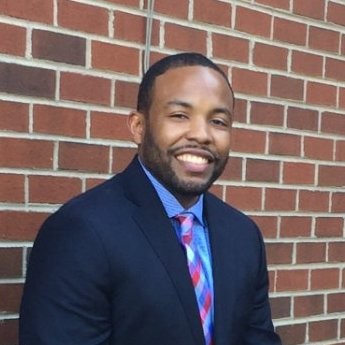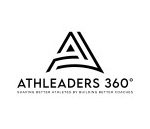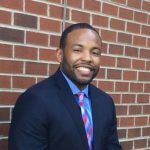


 Cordero Tanner is the Founder and Executive Director of Athleaders 360°. He holds a Master’s of Public Health from Georgia State University and a bachelor’s of science in Sociology for Virginia Tech. Tanner has over ten years of youth and community development in a variety of roles from coaching to being an outreach coordinator.
Cordero Tanner is the Founder and Executive Director of Athleaders 360°. He holds a Master’s of Public Health from Georgia State University and a bachelor’s of science in Sociology for Virginia Tech. Tanner has over ten years of youth and community development in a variety of roles from coaching to being an outreach coordinator.
His public health experience has enabled him to develop a unique approach to sports. Using the socioecological model of health, Tanner looks at the complex interplay between individual, relationship, community and society to create a holistic approach to coaching and youth development that seamlessly incorporates the character traits of “discipline, grit, teamwork, and sportsmanship.” With this approach he not only concentrates on athletic performance, but social and mental wellbeing to equip athletes with the necessary tools to function on and off the field.
Cordero is a loving husband and dedicated father of a daughter and son, whom he is raising in Atlanta.
Connect with Cordero on LinkedIn.
What You’ll Learn In This Episode
- Issues that their organization addresses
- Their organization’s key activities
- Their goals for Athleaders 360
This transcript is machine transcribed by Sonix
TRANSCRIPT
Intro: [00:00:04] Broadcasting live from the Business RadioX studios in Atlanta, Georgia. It’s time for Atlanta Business Radio, brought to you by on pay. Built in Atlanta on pay is the top rated payroll and HR software anywhere. Get one month free at on pay. Now here’s your host.
Lee Kantor: [00:00:31] Lee Kantor here. It’s time for another one of my favorite things we do each week, and that is to spotlight the folks at GSU ENI and the Main Street Fund, folks that are really changing the landscape of the entrepreneurial world in Atlanta. So today on GSU ENI Radio, we have Cordero Tanner with Athleaders 360. Welcome.
Cordero Tanner: [00:00:55] Thank you for having me. I’m glad to be here. Beyond today?
Lee Kantor: [00:00:58] Well, I’m excited to learn what you’re up to. Tell us about at Leaders 360. How are you serving, folks?
Cordero Tanner: [00:01:04] Yeah. So at least 3060 is a leadership development organization for young athletes. And we help youth sports coaches develop the skills needed to coach the next generation of leaders in the sports world as a deep divide between the expectations of youth sports coaches and actual competencies of those coaches. Of the 6.5 million youth coaches in the in the United States, only 30 of them, 30% of them have any kind of training. And sports is one of the only areas where adults are allowed to guide, you know, skills or training. So an athlete. We focus on equipping coaches with the best practices and practices in youth development so they can develop a coaching framework that is child centered, looks at the four lives out in the communities they are from and uses social justice to holistically develop their athletes.
Lee Kantor: [00:01:54] So how did this idea come about? What was the genesis? Did something happen that kind of got you fired up about this issue and this way to tackle it?
Cordero Tanner: [00:02:04] Yeah. So I’ve always had a strong passion for sports. I remember when I was in the fifth grade, I declared myself the assistant basketball coach of one of my teachers. Girls basketball team had a whistle and everything. And, you know, it was in college when I actually got my first chance to be a volunteer coach to a fourth grade basketball team. And my experiences, coupled with what I was learning in my sociology classes and public health, and I was actually what I was saying in youth development, and I was seeing the link between social inequities and sports and thinking there could be a way to actually holistically develop youth. So in spring of 2020, right before the pandemic, you know, I created athletes because you know what they say, they often say coaches say they don’t care about what you know until they know that you care. So I felt like, you know, this is the opportunity to give to other coaches and be able to show our athletes that we care about them and that we can give them all the tools that they need to be leaders in this world.
Lee Kantor: [00:03:09] And at the heart of it, though, is the athletes, right? Where these the person that chooses to be part of a sport, to be part of a team, they have kind of the core fundamentals maybe that aren’t fully developed yet, but at least there’s an opportunity to develop these athletes as true leaders. And with the right training and coaching, they can really kind of wring out the most value of being an athlete leader, whether they are, you know, become a professional athlete or not, just fundamentally the skills they’re going to gain if trained properly, are going to serve them the rest of their life.
Cordero Tanner: [00:03:46] Yeah, that’s right. So one of the things that we like to say is we, we through it, we do the work for the athletes, but we do it through our coaches. If you don’t even know anything about the sports world, athletes, coaches, anywhere between 12 to 25 hours per week, and that’s a lot of times that’s more than with any other adult. So we saw that the coach athlete relationship is a very critical relationship that we if we can get it right. And we can give these coaches the tools that they need, that we can we could really launch these athletes and have them prepared for the world, whether or not they make it to that next level or not. They’ll be ready for life regardless.
Lee Kantor: [00:04:33] Now, how did you develop this methodology around what you’re going to be coaching these coaches about and in order to serve their athletes that they’re working with?
Cordero Tanner: [00:04:46] Yeah, that’s a good question. So I’ve been a coach now for probably a little over ten years, so I’m deeply rooted in the coaching world. But also, like I said earlier, you know, my relationship with players, you know, that I’ve had in the past and, you know, the players that I coached, they they said these are the things they need. Like they verbalize those things that, you know, they need more support from their coaches. They want to be heard from their coaches and they seek this relationship. So everything that we’ve done with athletics is deeply rooted in the community. Everything is based on the needs of our athletes, but also we have input from coaches and saying, you know, where they need help it and where areas sit their weekend. So everything that we do at athletics has been rooted in what the coaches and athletes need.
Lee Kantor: [00:05:42] But as a coach, there’s a lot of there’s different styles of coaching. I mean, you have some that are kind of the old school yell at you and berate you to build you back up again. There’s others that are nurtured, more nurturing and more like kind of players, coaches. How do you kind of land on or do you land on a way, a methodology, or do you just say, here’s some best practices and just incorporate them? You know, that fits in a way that fits your personality and your style.
Cordero Tanner: [00:06:13] Yeah. So that’s another great question. I believe for the most part. There are multiple coaching styles, but what athlete is what we do is we just tell coaches like, here’s what your what your current generation of athletes need. Here are the things that they believe in here, the things that they value, and here are the things that they want to see in their leaders. And we give them those those best practices so they can in turn translate, add that into their coaching philosophy so they can be the best coaches for their for the athletes.
Lee Kantor: [00:06:50] And then right now, what stage are you at? You’ve obviously developed some methodology. Is any of your work happening right now?
Cordero Tanner: [00:07:00] Yeah. So just this summer we had five leadership retreats where we brought in athletes. We got them away from the hustle and bustle of everyday world, and we took them into the mountains and, you know, we did a lot of personal development, identity development, and talked about mental health and just gave them the opportunity to develop bonds with their peers, their teammates. And actually in this fall, we’re going to this fall, coming forward, we’re going to have our first. Coaching fellowship, where we’re going to work with coaches and really just work on that idea of being a transformational coach for your players.
Lee Kantor: [00:07:42] So the first retreat was athlete focused and then the next one is going to be coach focused.
Cordero Tanner: [00:07:48] Exactly. So one of our methods is we we focus on athletes, we talk to them, we learn the things that they need, the things that they want, and really figure out the areas in which they are struggling in and and where coaches can be best helpful. And then we take what we learn and we give it to the coaches.
Lee Kantor: [00:08:10] And then so moving forward, are you going to have services that are geared directly to the athlete as well as services that are aimed at the coaches, or is it going to be one or the other or It’s both right now?
Cordero Tanner: [00:08:26] Currently it’s both. Right now, I believe it’s important to really focus on on both. And that way by focusing on our athletes who are always, you know. Of the new challenges and the things that they’re going through. Say, we could give our coaches the latest and most up to date information to help them so they got the best tools to help their athletes.
Lee Kantor: [00:08:50] So how did you learn about the Main Street fund?
Cordero Tanner: [00:08:56] I actually learned about it from a participant in cohort to elicit that she we did the Civic Atlanta Fellowship with the center, the civic innovation. We did that together. And she’s like, you should apply, you know, you’re at Georgia State. And I was like, okay, I’ll apply. So that’s how I found out about it.
Lee Kantor: [00:09:16] Can you share maybe some ways that going through the program, how that’s helped you grow your business or maybe position it?
Cordero Tanner: [00:09:26] Yes. Since I started the fellowship, things have been going. I’m really great. You know, I’ve developed a lot of partnerships, important partnerships with people in the city of Atlanta. And I’ve also been able to learn a lot from from M.K. and his team there. And Erica. They’ve really been very helpful and very hands on and been able to, you know, catapult the guys, the people that are in the fellowship. So it’s been a great experience. But then I would say the most important thing and the most the thing that I’m most excited is that being around like peers who are on this entrepreneurial journey with me and we’re going to be able to share our wins and share our losses and, you know, be there to support each other. So that’s one of the main things that I’m most excited about being a part of this cohort.
Lee Kantor: [00:10:23] Now, do you have any advice you could share for other founders, you know, that are thinking about taking the leap into entrepreneurship and maybe are hesitant a little because, you know, not not everybody is kind of what wants to be that founder, that wants to be that person that’s following this type of path. Some people, you know, want to just go to school, get a degree, get a job. Any advice for that person that maybe has in the back of their head? I think I want to try this entrepreneur path.
Cordero Tanner: [00:10:57] Yeah, no, it’s definitely not easy. So I guess the main thing that I would say and what’s been most helpful for me is finding you a community, a supportive community that that’s going to be there for you. It’s going to call to check on you. If they haven’t heard from you a while, that’s going to give you constructive criticism or an advice. So finding that that close community that you can lean on when times get hard and that you can celebrate when you reach your accomplishment. So I would say that’s the main thing. Like if you’re going to go down this route, you have to get you a strong, tight community that you can rely on throughout the whole process.
Lee Kantor: [00:11:40] So what do you need more of? How can we help you?
Cordero Tanner: [00:11:46] Oh, well, right now, if anyone’s listening and you have a youth sports organization and you feel like your coaches need any training, feel free to contact me. And also, you are a school district or something and you want some coaches training or want to work through the athletes you can contact with. An athlete is 3060 dot org and we’ll love to partner with you.
Lee Kantor: [00:12:11] And that’s 80 Aliadiere is the number three, the number six, the number zero dot org.
Cordero Tanner: [00:12:20] That’s great.
Lee Kantor: [00:12:21] Well, congratulations on all the success and thank you so much for sharing your story. You’re doing important work and we appreciate you.
Cordero Tanner: [00:12:30] Thank you so much for having me. I really enjoyed my time.
Lee Kantor: [00:12:32] All right. This is Lee Kantor. We’ll see you all next time on GSU, N.I. Radio.
Intro: [00:12:41] Today’s episode of Atlanta Business Radio is brought to you by On pay. Built in Atlanta on pay is the top rated payroll in HR software anywhere. Get one month free at onpay.com.
About Our Sponsor
OnPay’s payroll services and HR software give you more time to focus on what’s most important. Rated “Excellent” by PC Magazine, we make it easy to pay employees fast, we automate all payroll taxes, and we even keep all your HR and benefits organized and compliant.
payroll services and HR software give you more time to focus on what’s most important. Rated “Excellent” by PC Magazine, we make it easy to pay employees fast, we automate all payroll taxes, and we even keep all your HR and benefits organized and compliant.
Our award-winning customer service includes an accuracy guarantee, deep integrations with popular accounting software, and we’ll even enter all your employee information for you — whether you have five employees or 500. Take a closer look to see all the ways we can save you time and money in the back office.














